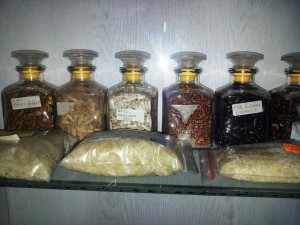A cocoa grower from Ghana was once shown a piece of chocolate. It was the first time he had ever seen such a thing. When he was told what it was, he exclaimed, “Oh! really? Does this come from the cocoa beans?”
These days new technologies are being harnessed to enable growers of cocoa and other commodities to transform their raw materials into processed goods such as chocolate on home ground.

To this end the Africa Secretariat is promoting the development of African raw materials. They are “dedicated to allowing ordinary Africans to trade their raw materials online as a means of acquiring the capital to [gain the] processing capability to convert the raw materials into the end product in Africa and sell to international markets.” The website suggests that the project is still at the very early stages.
But it may be very useful if it takes off. For instance, they are creating Africa’s first fashion value chain. The chain begins by sourcing raw materials for fashion on African soil and ends at retail shop floors in international marketplaces.
Gaining international exposure is a huge challenge. A few years ago, a famous European fashion house launched a line for men using Maasai fabrics. I don’t know if the fabrics were weaved by the Maasai or if their designs were just “copied” – in any case, I bet the Maasai didn’t make much money out of it. Electronic platforms that connect raw materials and other stages of the chain with producers and users may contribute to a fairer distribution of the value created from those materials – whether textiles, cocoa, or anything else.
New technologies can and will play a critical role in African development. But it will not happen overnight. It’s a long-distance race, one which requires a number of profound changes: from infrastructural improvements to institutional transformations. And, as a Nigerian driver once reminded me, the most important change is that which needs to take place in our hearts ( see my related post “Smart citizens for smart cities and countries“).

